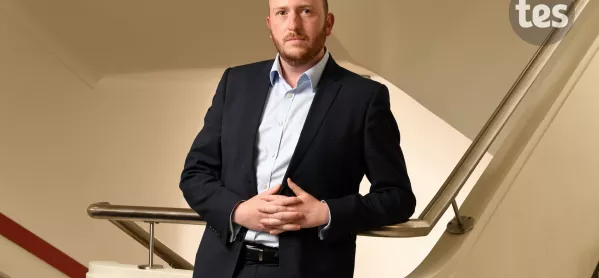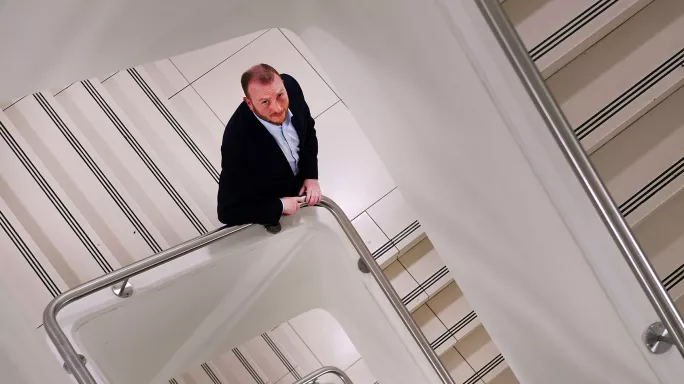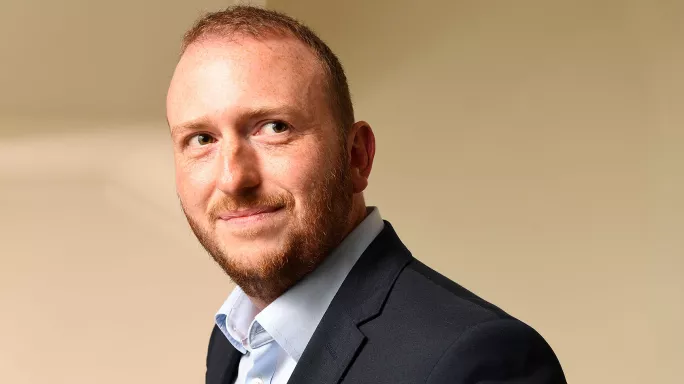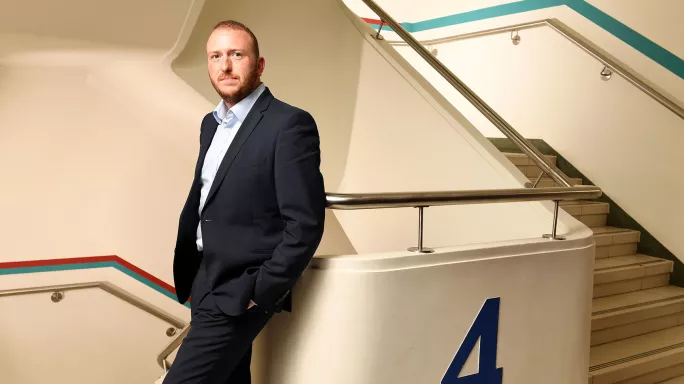- Home
- Ofsted is ‘not a coldhearted, monolithic beast’
Ofsted is ‘not a coldhearted, monolithic beast’

“Ofsted has this reputation as being a monolithic beast that is coldhearted, impossible to understand, and is not very understanding. Having worked here for a year now, having worked under Amanda [Spielman] for that time, nothing could be further from the truth.”
Chris Jones, Ofsted’s director of corporate strategy, believes there is gap between the way the inspectorate is perceived and the reality he sees in the regulator’s Whitehall head office.
Adviser: Tryl leaves New Schools Network
Changes: Ofsted’s new inspection regime
Perception: Less than one-fifth of teachers trust Ofsted
As schools reopen following the summer holidays, Ofsted inspections are being done differently. And Jones is really hoping teachers will notice.
The new education inspection framework will include a new quality-of-education grade - and the focus will be on the curriculum rather than data.
“I think the new framework will be more valuable to those on the receiving end of inspection than frameworks have been up to now,” Jones says.
“I think it will enable conversations between inspectors and school leaders to be much more focused on the substance of what school leaders are trying to. It should enable the conversations to be much more focused on developing the school rather than working towards the next Ofsted inspection or creating a tick list of things to get a better Ofsted grade.”
‘Substance rather than data’
Jones joined the inspectorate a year ago after being impressed by Spielman’s vision for education and how Ofsted could be a force for improvement.
He describes the inspectorate as a “fairly small group of individuals, who are all working as hard as they can and as best as they can to improve education and social care for millions of children”.
It is clear from speaking to him that he, along with other key senior figures at Ofsted, including the chief inspector, firmly believe their new inspection framework is the right thing to do.

“I would like us to demonstrate that our new conception of quality of education, based around the curriculum and based on substance rather than data - I’d like to see us prove that this is the right way to measure the quality of education and we can demonstrate that this is leading to actual improvements in the actual standard of education for children because, of course, that is the whole point of doing this,” he says.
Jones has been pleased by the way the pilots have gone, but adds: “We should remember that they are pilots and do not have the weight of a grade or the high-stakes nature of the real inspection. What I am hoping is that, from September, we do see that carry through into the live inspections.”
Changing people’s views ‘a long-term project’
But Jones accepts that shifting people’s perceptions of Ofsted is not something that can be done overnight.
The scale of feeling against the inspectorate was demonstrated by its most recent survey, which found that five out of six teachers - an overwhelming majority of 84 per cent - agreed with the statement that Ofsted places an unacceptable burden on the profession.
It would be putting it mildly to say that this is a statistic that, to use an Ofsted term, requires improvement. But even if the new framework is well received across the profession, any change will not come quickly.
“If perceptions of Ofsted are to change, and I do hope that they do, we are looking at a long-term project rather than a short-term thing,” he says.
Jones has been at Ofsted a little over a year and now holds arguably one of the most important policy jobs in education.
As the director of corporate strategy he is responsible for the research and evaluation that Ofsted carries out and the way it communicates with parents, politicians and the education sector.
And in the age of social media, his job is also one of the most high profile.
His predecessor, Luke Tryl - a former special adviser to Nicky Morgan when she was education secretary - had a presence on what is known as “eduTwitter”, as, until very recently, did Sean Harford, Ofsted’s national director of education.

Mr Jones describes himself as more of a traditional civil servant than his predecessor. But he says he is keen to engage with the profession and is not afraid of using the platform in a lighthearted way.
“There is an incredibly vibrant and important community of teachers on Twitter,” he says. “A lot of those teachers and headteachers are leading the way when it comes to thinking about curriculum, thinking about pedagogy and classroom practice. That is something we should celebrate, respond to and be involved in as Ofsted.”
Mr Jones has also posted jokes on the site about education policy and Ofsted itself.
“It’s a really fine line and it’s a balancing act, and the number of tweets I have written and then deleted before I sent them…there are probably dozens of them. I think you have to accept that occasionally it is a risk and that’s OK.
“I think I am more worried when I make a joke and nobody responds at all.”
Wanting to make a ‘real-world impact’
The 31-year-old career civil servant has worked in Westminster and Whitehall since graduating a decade ago.
He worked at the Treasury and Department for Transport during the early days of plans for the high-speed rail network and HS2, and on what he describes as the “semi-mythical” Northern Powerhouse plan of former chancellor George Osborne. He says he chose to work in education because he wanted to do something that had a more immediate impact in the real world.
Before joining Ofsted, Jones worked at the Department for Education on developing the national funding formula for schools. He credits Spielman’s vision for attracting him to the inspectorate.
“Education is a policy area I have always found fascinating and I thought it would be a worthwhile thing to come and jump into,” he says.
“While I was at the DfE, I was getting up to speed with what Amanda was doing at Ofsted, I thought the reforms she was pushing forward and the way she spoke about education was incredibly impressive and powerful, and it was definitely something I could get on board with.”

By working for Ofsted, he is also working in the field of both of his parents’ careers. His father was a headteacher while his mother is a social worker.
Jones graduated from Warwick University with a politics and sociology degree, and was drawn to work in politics and Westminster, taking his first job working for Liberal Democrat MP Stephen Lloyd.
His role now involves close liaison with the DfE at a time of political change, with Gavin Williamson being appointed education secretary in Boris Johnson’s cabinet.
“It’s a challenge in that we have to start from scratch in terms of building relationships with the key people,” he says. “Amanda has already met the secretary of state and I think she was the first person he phoned on his first or second day, so that relationship has started really strongly.”
Jones said that, from September, he expected Ofsted to feed back to the department about how its inspections were going and what it was finding out about workload.
Since Spielman became the chief inspector of schools in 2017, there have been three education secretaries.
During the end of Damian Hinds’ spell at Sanctuary Buildings, Ofsted was pushing its case for the government to end the exemption on outstanding schools and to allow it to inspect multi-academy trusts.
Outstanding schools have been exempt from routine inspection since 2012, meaning some schools have gone over a decade since they were last visited by Ofsted.
Jones says he is more confident on one of these issues than the other. And his hope that a “cross-party, cross-sector consensus” will end the exemption on outstanding schools was justified at the start of the week.
However, he says Ofsted being able to inspect multi-academy trusts is “probably further away”.
The inspectorate has also been on the front foot on a number of issues facing schools, such as LGBT protests and the rise in knife crime being blamed on school exclusions.
Jones believes this is an important role for the inspectorate to fulfil.
“We have been really keen to listen to heads and teachers tell us about the challenges we are facing and to speak out where we think it’s appropriate,” he says.
“It’s not just [with regards to] equalities where headteachers are under the cosh, there is a whole load of things where headteachers are being expected to pick up the slack because local authority services have been cut, for example, on special educational needs and disability, or the blaming of schools for knife crime because it is seen as an easy option.”
Schools and headteachers already have difficult and time-consuming jobs without being expected “to solve all sorts of other problems”, he insists.
“It is,” Jones adds, “important that we use our voice to call some of this out.”
CV: Chris Jones
- Degree in politics and sociology, Warwick University
- Policy adviser on energy, HM Treasury
- Senior policy adviser on HS2, Department for Transport
- Head of school strategy and policy, Department for Education
- Deputy director for research and evaluation, Ofsted
- Director of corporate strategy, Ofsted
Keep reading for just £1 per month
You've reached your limit of free articles this month. Subscribe for £1 per month for three months and get:
- Unlimited access to all Tes magazine content
- Exclusive subscriber-only stories
- Award-winning email newsletters



